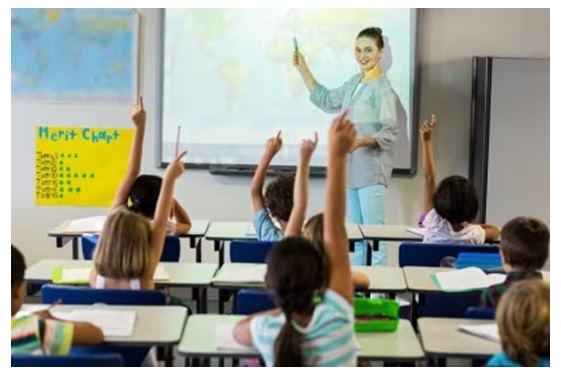Revolutionizing Education: Exploring the Impact of Digital Pedagogies

In a world where technology is constantly evolving, it comes as no surprise that education is also undergoing a digital revolution. From Digital Teacher platforms to virtual classrooms, the impact of digital pedagogies on teaching and learning cannot be overstated. Join us as we explore how these innovative approaches are reshaping the educational landscape and empowering educators and students alike. Get ready to be inspired by the endless possibilities of revolutionizing education through digital tools and techniques!
Introduction: Definition of digital pedagogies and its impact on education
Welcome to the digital era of education, where traditional teaching methods are being revolutionized by the power of technology. In this fast-paced world, digital pedagogies are reshaping the way we learn and teach, opening up a world of possibilities for educators and students alike. Let’s dive into the exciting impact of digital pedagogies on modern education!
Benefits of digital pedagogies in education: Increased engagement, personalized learning, access to information and resources
Digital pedagogies have revolutionized the way we approach education by enhancing student engagement. Through interactive platforms and multimedia tools, learning becomes dynamic and captivating. Personalized learning is another key benefit, allowing students to progress at their own pace and cater to individual needs. Access to a vast array of information and resources online opens up endless possibilities for exploration and research. Students can delve deep into topics that interest them, fostering a love for continuous learning. In this digital age, educators have the opportunity to create diverse learning experiences that cater to various learning styles and preferences. By embracing digital pedagogies, we pave the way for a more inclusive and enriched educational landscape where every student has the chance to thrive.
Challenges faced by educators in implementing digital pedagogies
Implementing digital pedagogies in education comes with its fair share of challenges for educators. One common obstacle is the lack of proper training and professional development opportunities to effectively integrate technology into their teaching practices. Educators may also face resistance from students who are not accustomed to learning through digital platforms, requiring patience and adaptability to bridge this gap.
Furthermore, the rapidly evolving nature of technology means that educators need to constantly update their skills and knowledge to stay relevant in a digitally-driven educational landscape. Balancing traditional teaching methods with digital tools can be a delicate task, as finding the right blend is crucial for successful implementation.
Additionally, issues related to access and equity must be addressed, as not all students may have equal access to devices or reliable internet connection outside of school hours. This disparity can widen the existing achievement gap if left unaddressed. Overall, navigating these challenges requires dedication, flexibility, and a willingness to embrace change in order to harness the full potential of digital pedagogies in education.
Potential drawbacks of a fully digital education system: Lack of face
While Teacher Training has undoubtedly revolutionized education, it is essential to acknowledge the potential drawbacks of a fully digital education system. One significant concern is the lack of face-to-face interaction between students and educators. Building relationships, fostering communication skills, and developing social-emotional intelligence are crucial aspects of learning that may be compromised in a solely digital environment.
As we continue to embrace technology in education, finding the right balance between leveraging digital tools for enhanced learning experiences and maintaining essential human connections will be key. Educators must navigate these challenges thoughtfully to ensure that students receive a well-rounded education that prepares them for success in an increasingly digitized world. By addressing these potential drawbacks proactively, we can create a more holistic educational experience that harnesses the power of digital pedagogies while nurturing the personal growth and development of every learner.





